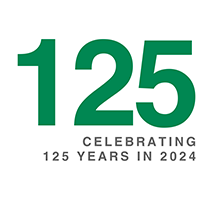Social Media and the law: Our top tips for managing your school’s online presence, unauthorised posts and anonymous accounts
Online posts and unauthorised social media accounts can be incredibly damaging to a school’s reputation, and to the reputation of school leaders, staff and board members. While you cannot necessarily prevent damaging posts or unauthorised accounts from popping up, once you are aware of them you can take action to have such content removed.
You should start by:
- taking steps to protect the school’s intellectual property – we recommend registering trade marks for your school’s name, logos and even the motto (where this is sufficiently unique) to give protection from unauthorised use of those trade marks;
- claiming any Facebook business pages (as the business owner) that were automatically created by visitors to the school or members of the school community;
- reporting any duplicate or unauthorised pages that are not able to be claimed;
- actively and regularly searching online (including on Google, Facebook, Instagram and TikTok) for reviews, content or online pages that use the school’s intellectual property without authorisation, and reporting these pages to the relevant social media platform for trade mark infringement (where you have registered a trade mark) or potentially copyright infringement;
- contacting the subscriber who administers the account directly (through chat message functions or by commenting on a post) to ask them to remove content that uses the school’s registered trade marks.
What if an online post is offensive or damaging to the school’s reputation, but does not use a registered trade mark?
If the online post sufficiently identifies the school, is untrue and is also likely to cause harm to the school (such as by impacting enrolments), it will be defamatory and you may be able to bring a claim for defamation.
If you know the identity of the publisher of the statement (the person who said it or wrote it), you can contact them and ask them to remove it. Where a defamatory statement is hosted online, you may wish to put the relevant service provider on notice that you consider the statement to be defamatory and ask the website host to remove it.
In certain circumstances, the website host for online statements can be considered a ‘secondary publisher’ and on that basis it may also be liable for the defamation.
If your initial attempts are not successful, you may wish to seek advice from a defamation lawyer, who can assist by preparing a ‘concerns notice’. This is a formal notice that must be issued to the publisher of a defamatory statement before you can bring a civil action in court for defamation.
Where posts are made anonymously, taking any action for defamation may be particularly difficult. Social media platforms have privacy obligations and will not release the personal information for subscribers on request. If the defamatory material is particularly bad, you may wish to speak to a lawyer about seeking a court order to identify the publisher.
In other cases, it may be better not to respond directly to the publisher. Instead, you may wish to speak to a PR specialist about generating positive publicity for the school to help control the narrative and draw attention away from any damaging content.
If any threats are being made against students or staff of the school, you should involve the Police in the first instance and also report abusive or harmful content to the e-Safety Commissioner.
Should any concerns arise in relation to damaging or defamatory social media posts, please contact Stephanie McLuckie for advice.
